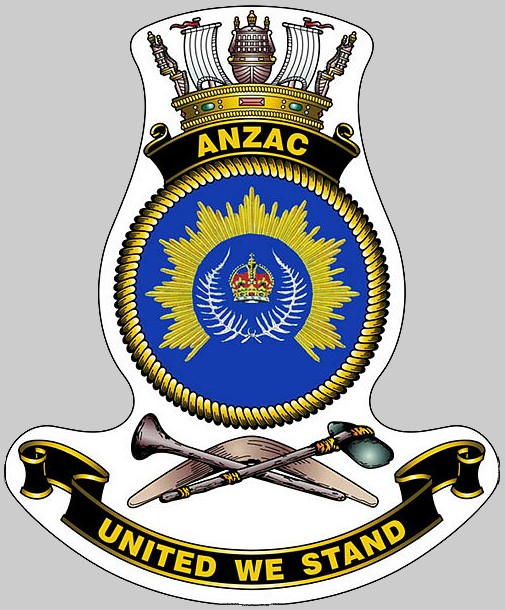|
|
||
|
HOME
|
US Navy -
ships
|
US Navy - air
units
|
USMC - air
units
|
International
Navies
|
Weapon Systems
|
Special Reports |
||
|
Royal Australian Navy - Frigate FFH 150 HMAS Anzac |
||
|
||
| 05/24 | ||
|
Type,
class: Helicopter Frigate / FFH; Anzac class Builder: Tenix Defence, Williamstown, Australia STATUS: Laid down: November 5, 1993 Launched: September 16, 1994 Commissioned: May 18, 1996 Decommissioned: May 18, 2024 Namesake: Australian and New Zealand Army Corps (first World War) Ships Motto: UNITED WE STAND Technical Data: see INFO > Anzac class Frigate / FFH |
||
| images | ||
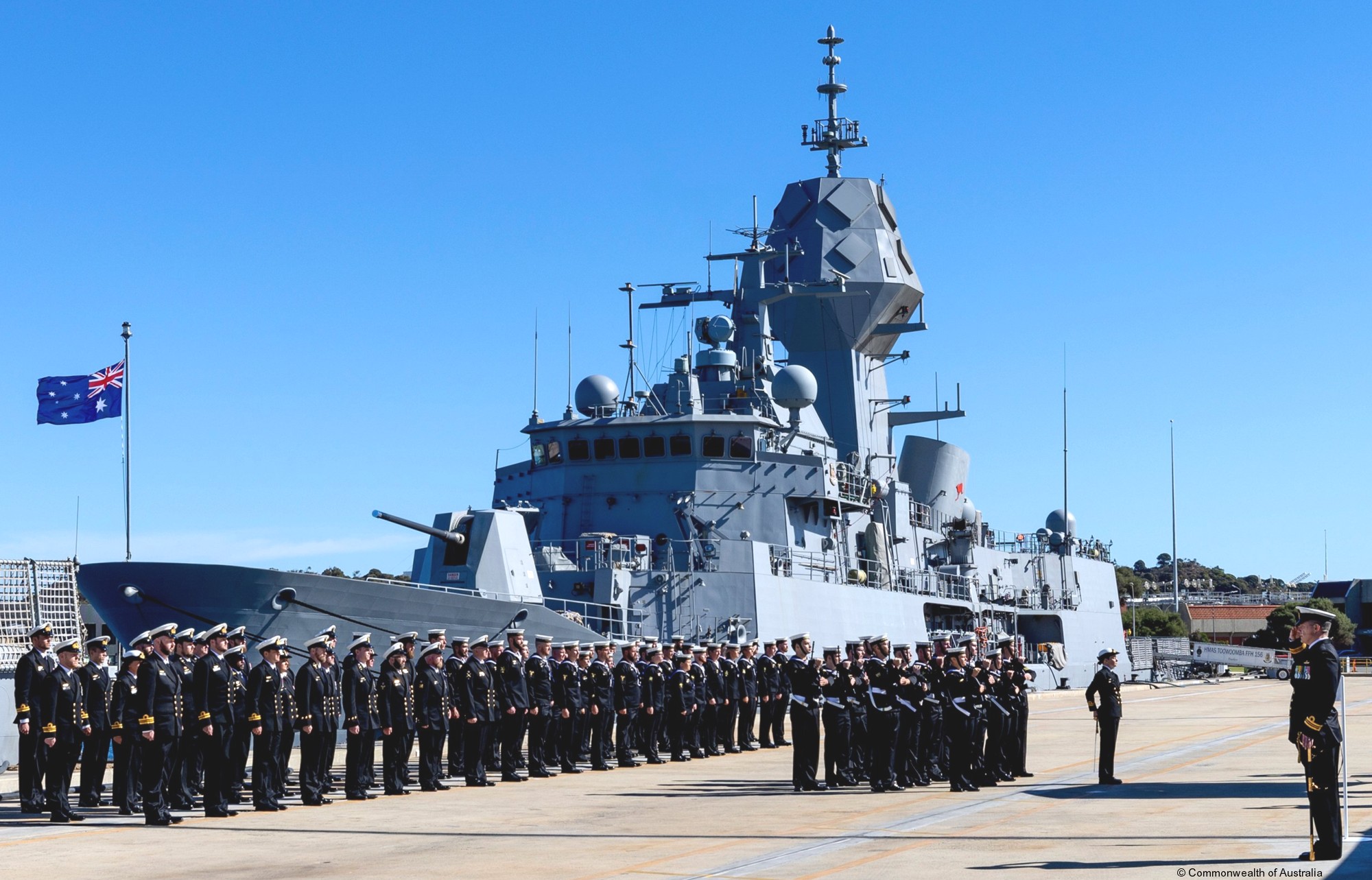 decommissioning ceremony at HMAS Stirling - May 18, 2024 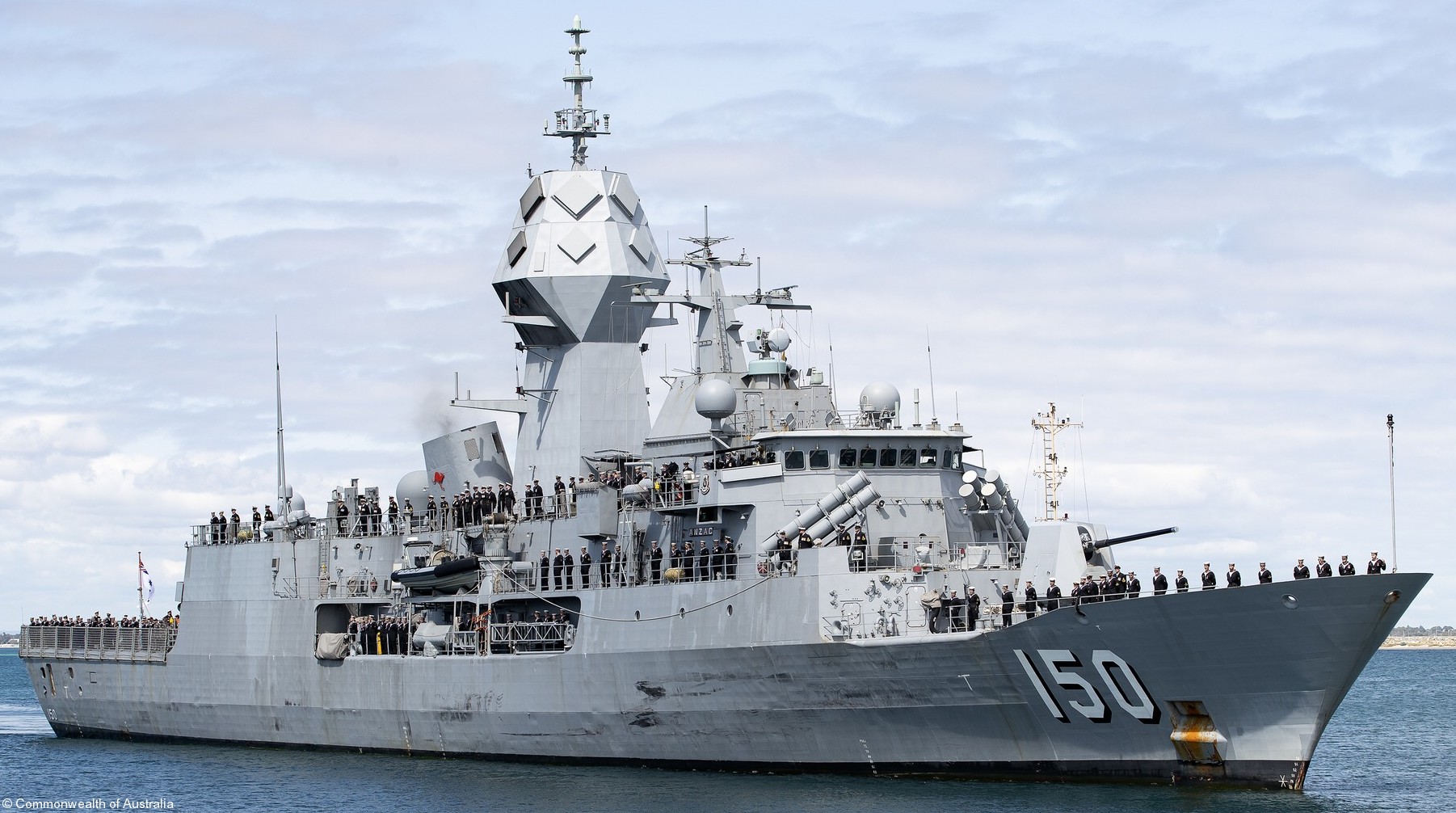 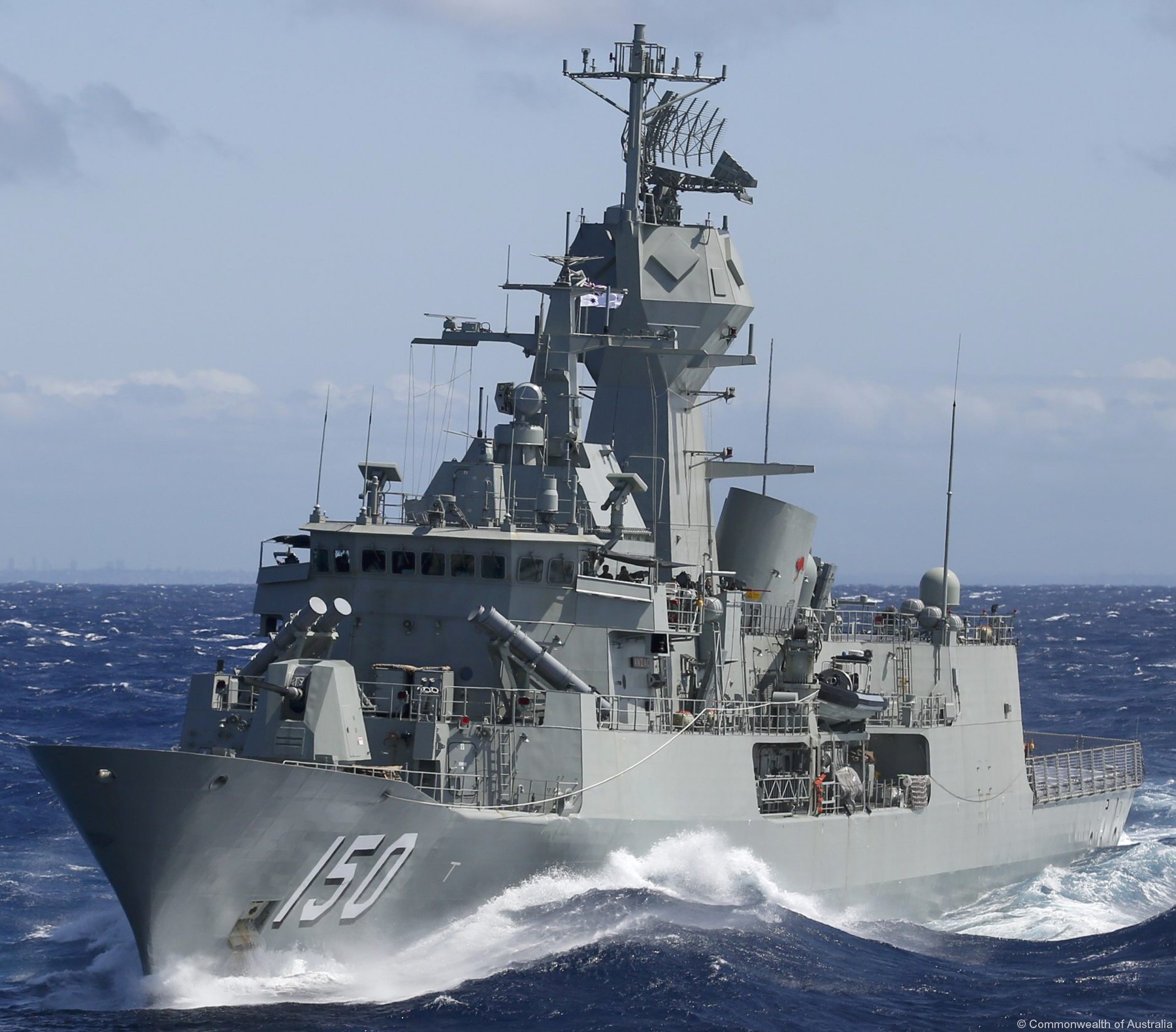 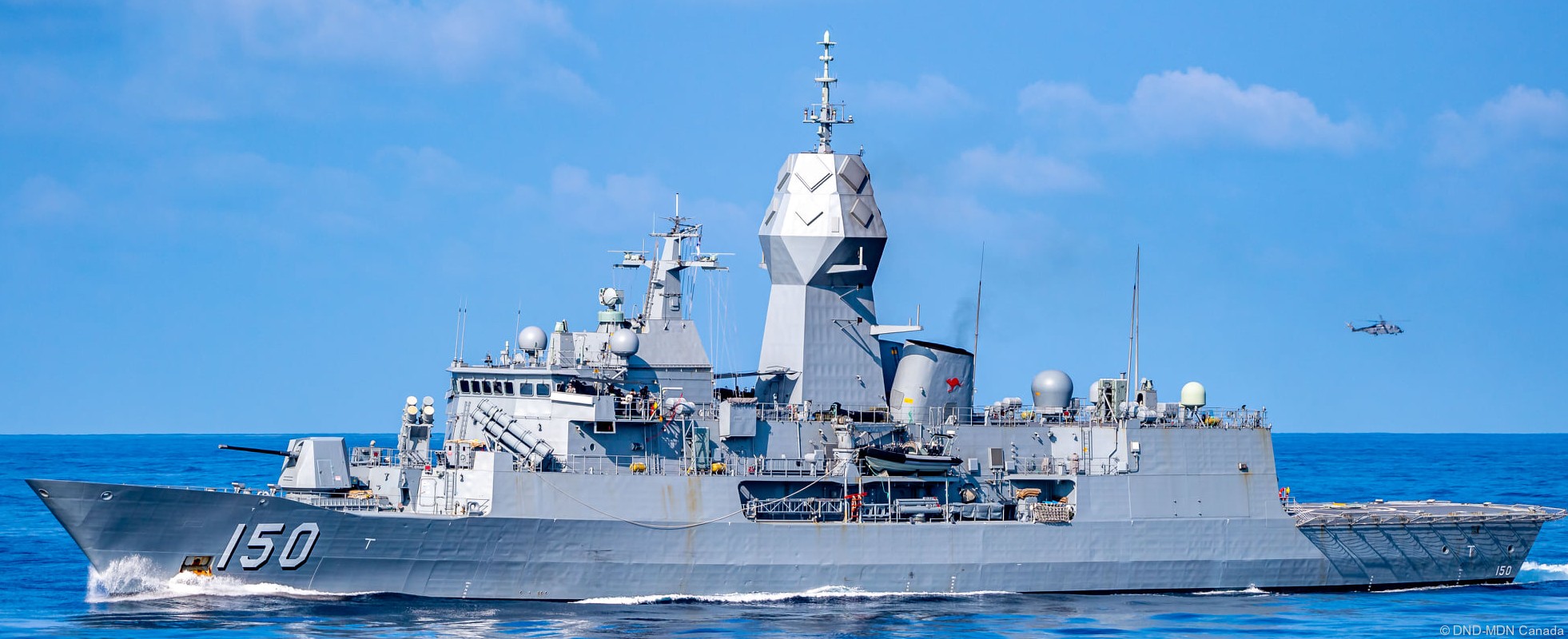 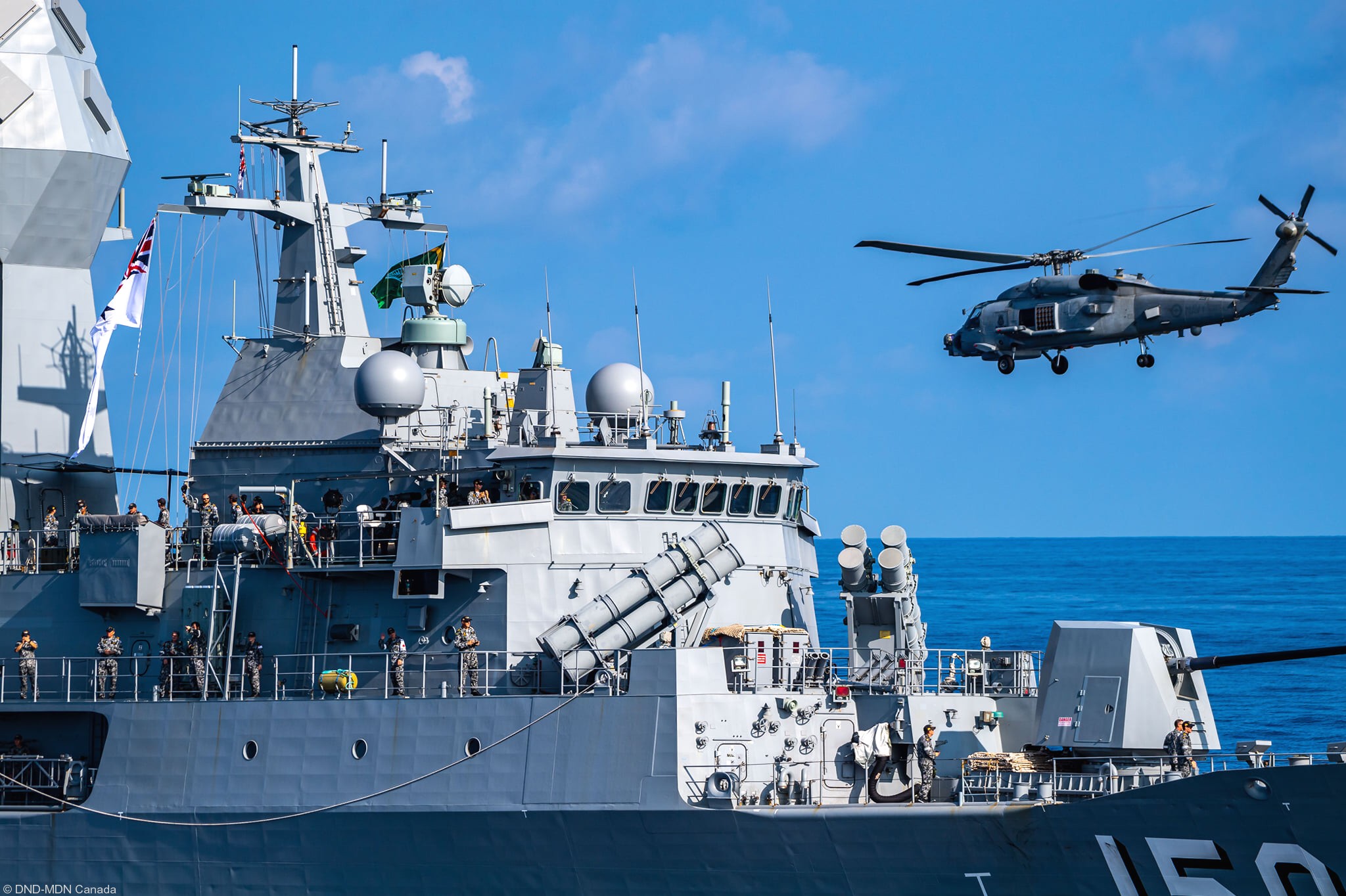 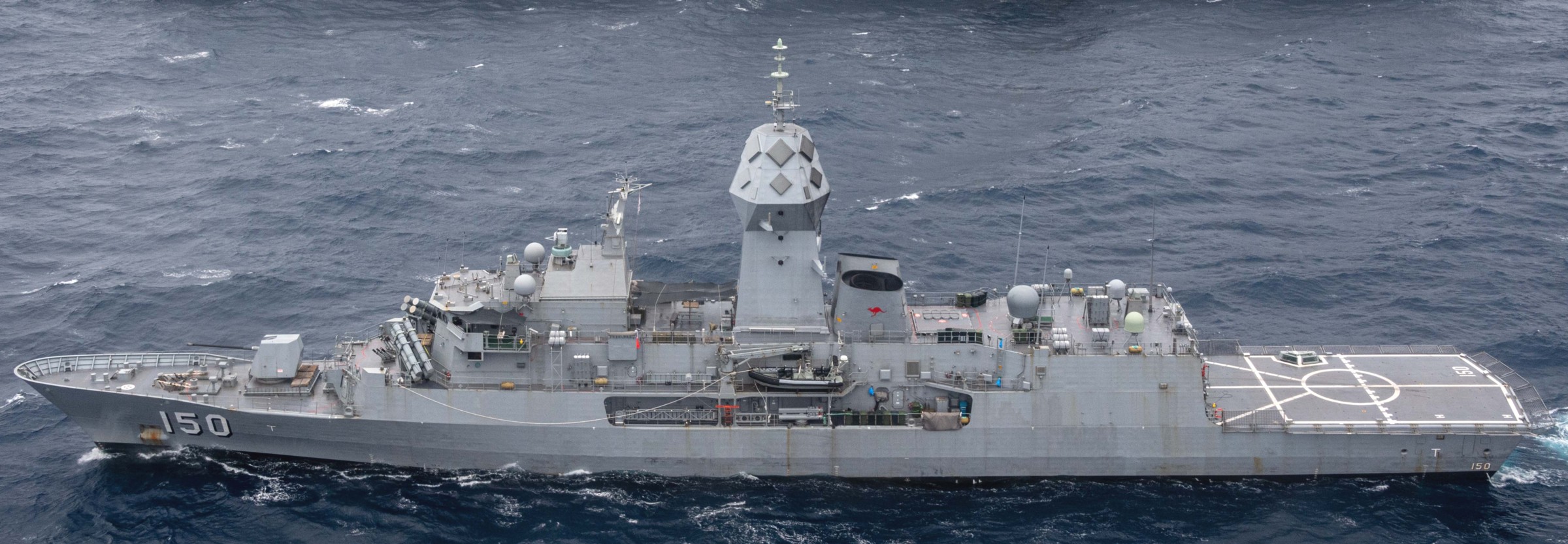 June 2023 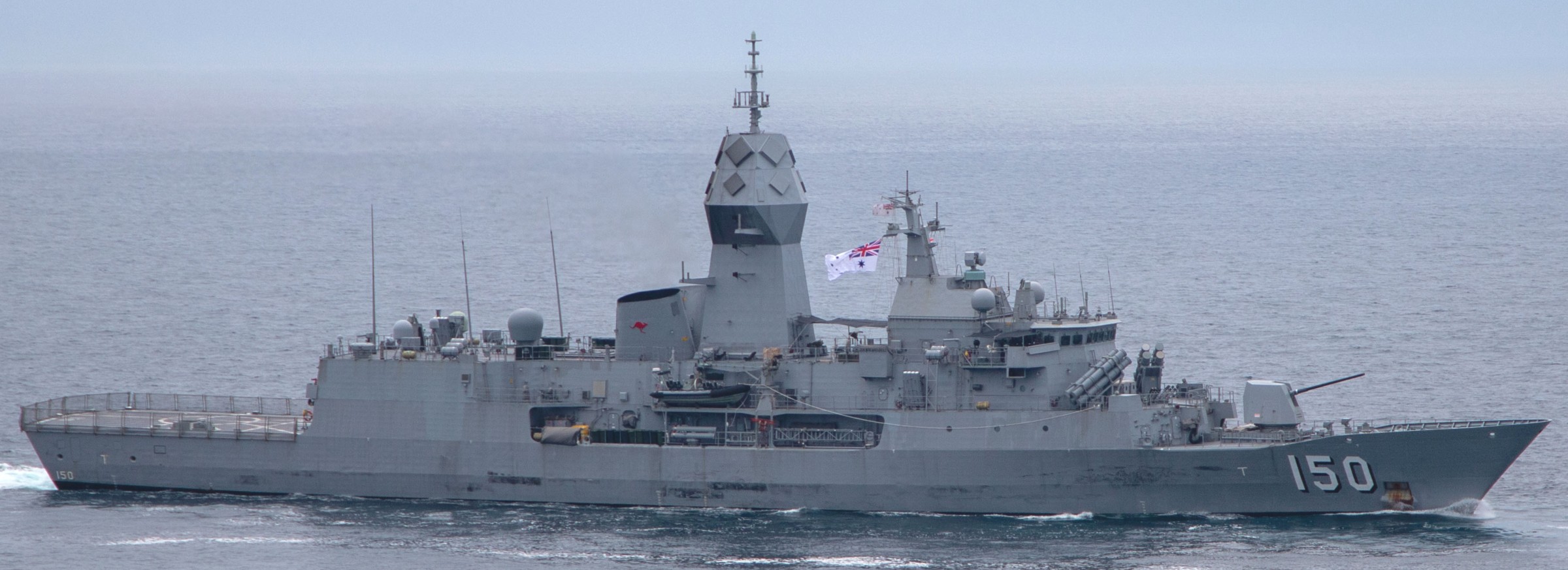 June 2023  April 2016  Gulf of Aden - October 2012  Gulf of Aden - October 2012 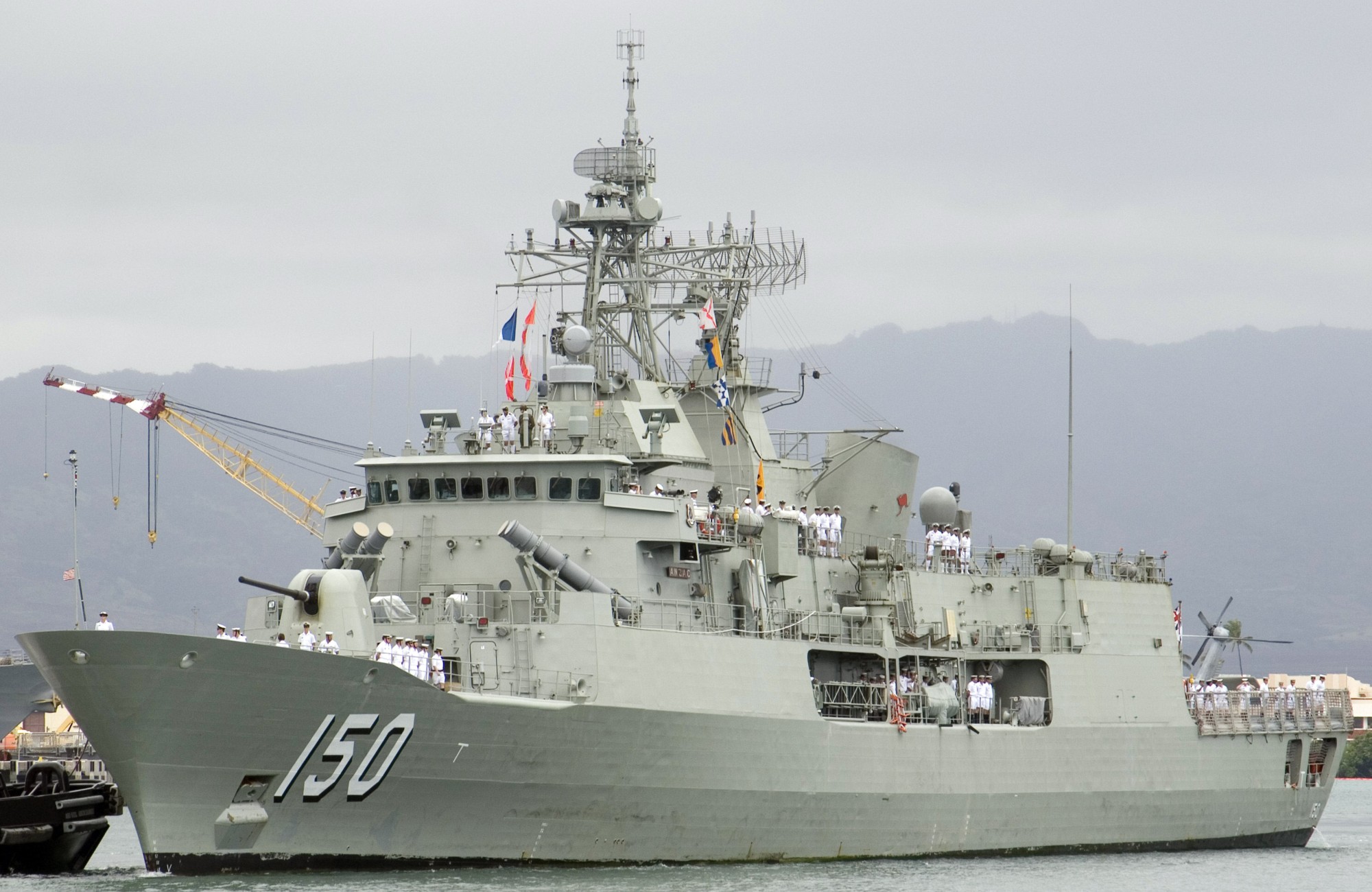 Pearl Harbor, Hawaii - June 2008  Pearl Harbor, Hawaii - June 2008  Pearl Harbor, Hawaii - June 2008  Persian Gulf - August 2007 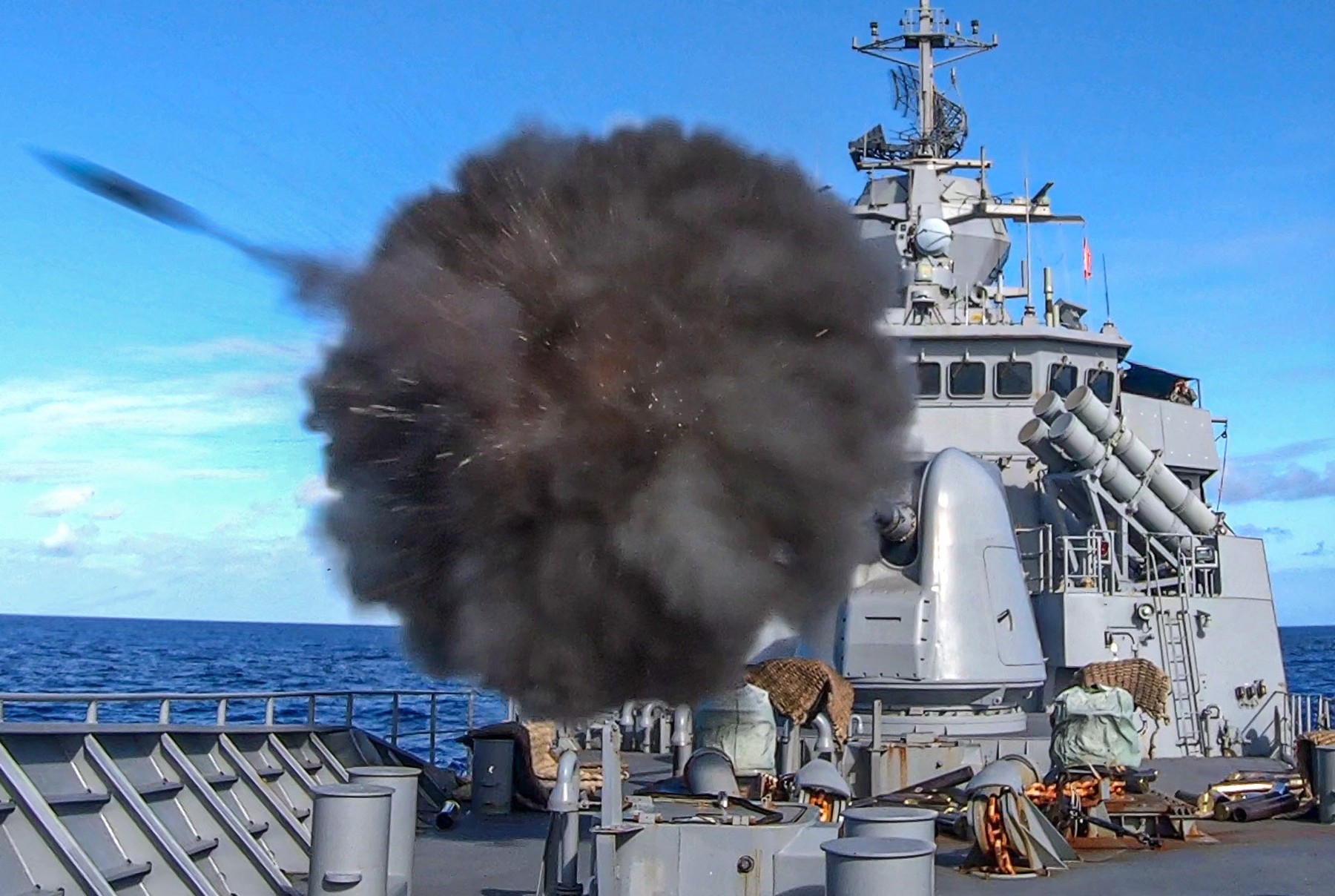 |
||
|
|
||
|
In October 1997, the Anzac conducted Operation Dirk supported by
HMAS Westralia targeting illegal fishing vessels in the Southern
Ocean catching the Patagonian toothfish around Heard Island and
McDonald Islands in the Australian Fisheries Zone with the Salvora
and the Aliza Glacial apprehended boarded by Clearance divers. Anzac was deployed to East Timor as part of the Australian-led INTERFET peacekeeping taskforce from 19 to 29 September 1999. The ship was later awarded the battle honour "East Timor 1999" in recognition of this deployment. Between 2001 and 2003, Anzac was deployed to the Persian Gulf on three occasions. Anzac was deployed to the Persian Gulf for the third time from February until May 2003, as part of Operation Falconer. On 21 March 2003, Anzac provided naval gunfire support during the Battle of Al Faw. The intent of the assault was to capture the Al Faw Peninsula before Iraqi forces could sabotage the two major oil terminals in the area. The frigate began her first fire support mission at 06:04 on 21 March (the first time a RAN ship had fired in anger in 31 years) and completed seven fire missions over a three-day period. The frigate received the Meritorious Unit Citation on 27 November 2003 for her service during this deployment. In March 2010, Anzac was awarded the battle honours "Persian Gulf 2001-03" and "Iraq 2003". In 2005, Anzac participated in a Northern Trident deployment: a round-the-world voyage intended as a flag-showing cruise to the northern hemisphere. As part of this deployment, Anzac was involved in ceremonies for the 90th anniversary of the Gallipoli landings, and participated in the fleet review for the bicentenary of the battle of Trafalgar. On the morning of 13 March 2009, Anzac was one of seventeen warships involved in a ceremonial fleet entry and fleet review in Sydney Harbour, the largest collection of RAN ships since the Australian Bicentenary in 1988. The frigate was one of the thirteen ships involved in the ceremonial entry through Sydney Heads, and anchored in the harbour for the review. Anzac was assigned to Rotation 29 of Operation Slipper from July 2012 to January 2013 as part of the International Coalition Against Terrorism (ICAT), and which included counter-piracy in the Arabian Sea region and elsewhere. During 2014, Anzac was the third ship of the class to undergo the Anti-Ship Missile Defence (ASMD) upgrade. The upgrade occurred across 2014 and early 2015, the upgrade included the fitting of CEA Technologies' CEAFAR and CEAMOUNT phased array radars, on new masts, a Vampir NG Infrared Search and Track system, and Sharpeye Navigational Radar Systems, along with improvements to the operations room equipment and layout. Between March and October 2015, Anzac sailed on a second Northern Trident deployment. The 27,000-nautical-mile (50,000 km; 31,000 mi) circumnavigation included port visits to 11 countries and participation in commemorative services for the Gallipoli and Normandy landings. HMAS Anzac (III), the first of her class, was decommissioned on May 18, 2024 after 28 years of service. The decommissioning ceremony was held at HMAS Stirling. source: wikipedia+ |
||
|
The Australian and New Zealand Army Corps (ANZAC) ... was originally a First World War army corps of the Mediterranean Expeditionary Force. It was formed in Egypt in December 1914, and operated during the Gallipoli campaign. General William Birdwood commanded the corps, which primarily consisted of troops from the First Australian Imperial Force and 1st New Zealand Expeditionary Force, although there were also British and Indian units attached at times throughout the campaign. The corps disbanded in 1916, following the Allied evacuation of the Gallipoli peninsula and the formation of I ANZAC Corps and II ANZAC Corps. The corps was reestablished, briefly, in the Second World War during the Battle of Greece in 1941. The term 'ANZAC' has been used since for joint Australian-New Zealand units of different sizes. |
||
| patches + more | ||
|
|
seaforces.org
|
Royal
Australian Navy start page
| |

